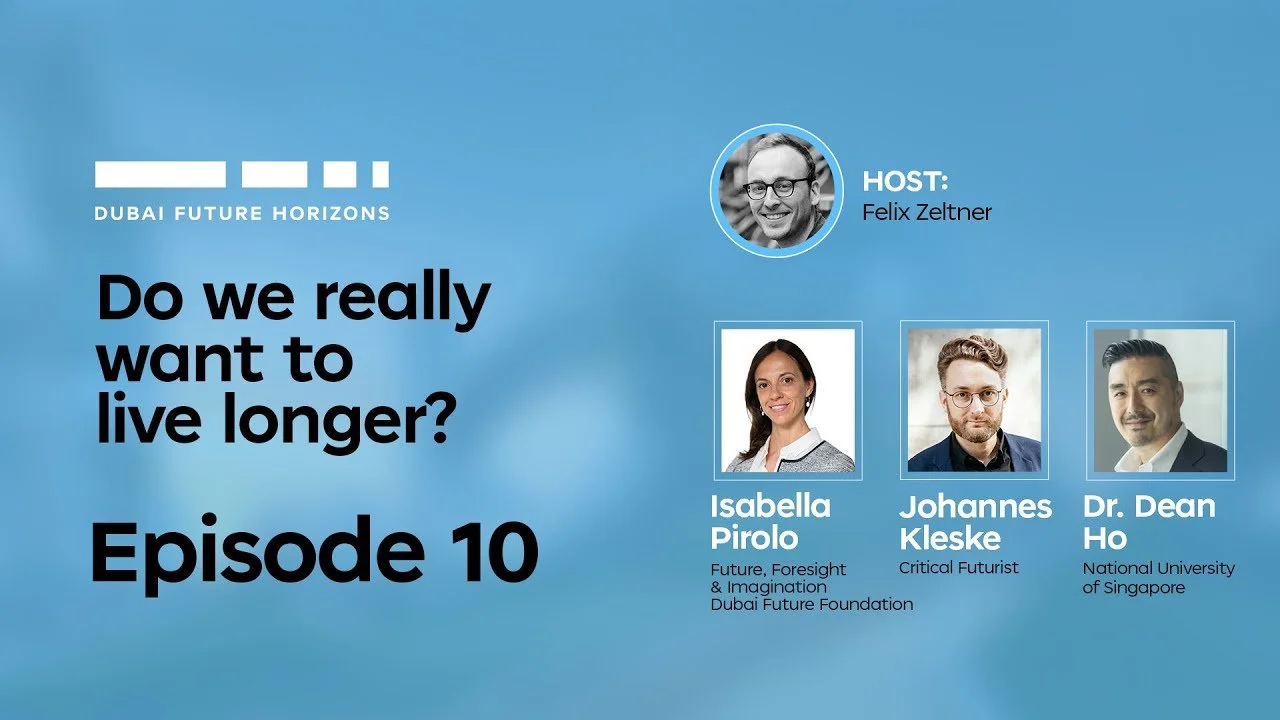#6 GOOD GRIEF NEWS
ON JANE FONDA, FEAR OF AGEING AND THE LONGEVITY TREND
Old Me through the lens of FaceApp
This month was my birthday. I turned 45. I don't hate getting older, but I've definitely been thinking more about how it makes me feel – like those moments when you scroll and scroll to find your birth year on an online form, or when TV shows are overly nostalgic about the “glorious 90s” (my youth, ahem). I like to think that I've only reached the halfway point and, with any luck, could live to be 90. It's both exciting and unnerving to enter a new phase of life.
I would like us as a society to take a more relaxed and positive approach to ageing. And there are examples of this happening: During Paris Fashion Week, L'Oréal had a very (age) diverse cast on the catwalk, including Eva Longoria and Jane Fonda. But in the next breath, another article appears about actresses who try to stay relevant with the help of cosmetic surgery. Even though we are making progress in some areas, there is still an aversion to ageing in the West - and this is closely linked to the fear of death. So where do we stand in terms of our perception of ageing?
Overview of speakers at Dubai Future Foundation event
The longevity debate: Extending lifespan and health span
I recently watched a discussion hosted by the Dubai Future Foundation on LONGEVITY - how advances in medicine, food and technology are extending our lives. Even Tony Robbins is now opening longevity clubs where members can access cutting-edge anti-aging treatments, personalised health plans and therapies aimed at extending not only lifespan but also "healthspan" - the years we live in good health. This reality is fast approaching for those who can afford it. But if death is pushed further away, how will this change our understanding of life?
The democratisation of old age
We may soon see a blurring of the traditional stages of life - adolescence, adulthood and old age - as technology frees us from previous physical and mental limitations. We may not feel the pressure to rush through life's milestones. Imagine having multiple careers, going back to school at 60, or having five generations living together in one family. This offers a new, richer life experience, but it also forces us to redefine what ageing means and how we measure it.
The price of living longer: Lost joy in the moment
But the promise of longevity comes with a risk: will we forget how to live in the moment? An obsession with health hacks, treatments and life extension could lead to a future-focused mindset that robs us of simple pleasures. Imagine AI tracking our every move, nudging us to avoid that slice of cake at a friend's birthday. Would this constant drive to "optimise" for a long life come at the expense of spontaneous joy? Could we forget to live in our quest to live longer?
The longevity trap: cultural stagnation?
Longer life expectancy could potentially lead to cultural stagnation. In recent centuries we've already seen the extension of adolescence - what used to be adult responsibility at 16 is now postponed until the 30s. If people live to 100 or beyond, will we see 50-year-olds behaving like 20-somethings? While this may offer freedom, it could also slow social progress by delaying cycles of generational change and fresh perspectives. Could longer life ultimately stall cultural evolution?
Kind of ‘the’ book on Longevity: “Outlive” by Peter Attia
Longevity and our fear of death
At its core, the quest for longevity is deeply linked to our fear of death. By pushing death further away, will we disconnect ourselves from its meaning? Memento mori - the practice of remembering that we must die - helps us to live more fully by appreciating the present. Prolonging life may make death seem even more distant, but it risks removing the urgency and meaning that mortality brings. If we focus too much on surviving death, we may lose the wisdom that comes from accepting it.
What happens if we all live to be 100?
As we approach the reality of living to 100, how will this affect our cultural understanding of ageing and the finiteness of life? On the one hand, it could open up a new sense of freedom to explore, learn and reinvent ourselves at any age. On the other hand, our distance from death could change the way we value time, relationships and the stories we tell across generations.
Longevity offers incredible opportunities, but it also raises profound questions. How do we ensure that a longer life remains a meaningful life?
Continue Reading…
A couple of times I did FOCUS TOPICS on Instagram. I picked a topic or trend and shared a series of posts, observations and stories around it to discuss it from different angles. I've certainly done one on our changing perceptions of AGEING. If you're interested in learning more, I'd recommend you to browse through my story highlight – or to just get in touch with me with your particular question.
PS: Feel free to share your thoughts as well. I'm always keen to hear them!
Exciting News: Introducing “Pick My Brain” Calls! 🎉
I’m launching something new—and it’s going live at the end of this week! (Yes, a little self-imposed deadline 😅.)
Introducing "Pick My Brain"—a 60-minute focused, tailored mentoring call designed for individuals, researchers, early-stage entrepreneurs, and even established companies in the death and grief space who need a fresh perspective.
Why am I offering this?
I often get questions like:
“Can I get your perspective on this?”
“What are the key trends I should know about?”
“Have you seen any innovative concepts in the space recently?”
If you're working on a new idea, starting a project, feeling out of touch with changing consumer needs and trends in this area, or need quick guidance to navigate this sensitive field, a Pick My Brain call is for you. This call will give you some clarity and actionable steps to move forward.
What’s Included:
Pre-call questions to ensure we make the most of our time.
A 60-minute call focused on your unique challenges.
Concrete takeaways you can implement immediately.
Available in English, German, or Dutch.
Are you interested?
The booking page will be live soon! But if you want to be first in line, just write me an email, and I’ll add you to the waiting list. I look forward to chatting with you! 🤩
Thanks for reading!
🗨️ What do you think of Erica’s thoughts and the idea of the ‘comforting goods’ shop? And, in general, would you like to read more interviews? Let me know by replying to this mail.
💡 Are you interested in learning more about my research or exploring opportunities for collaboration? Send me an email and let's start the conversation!
***
Thank you for reading GOOD GRIEF NEWS, a monthly newsletter on trends and fresh perspectives around death, grief and remembrance. You can see more of my work at goodgrief.me or stefanieschillmoeller.com and feel free to follow me on Instagram.
07.10.2024





